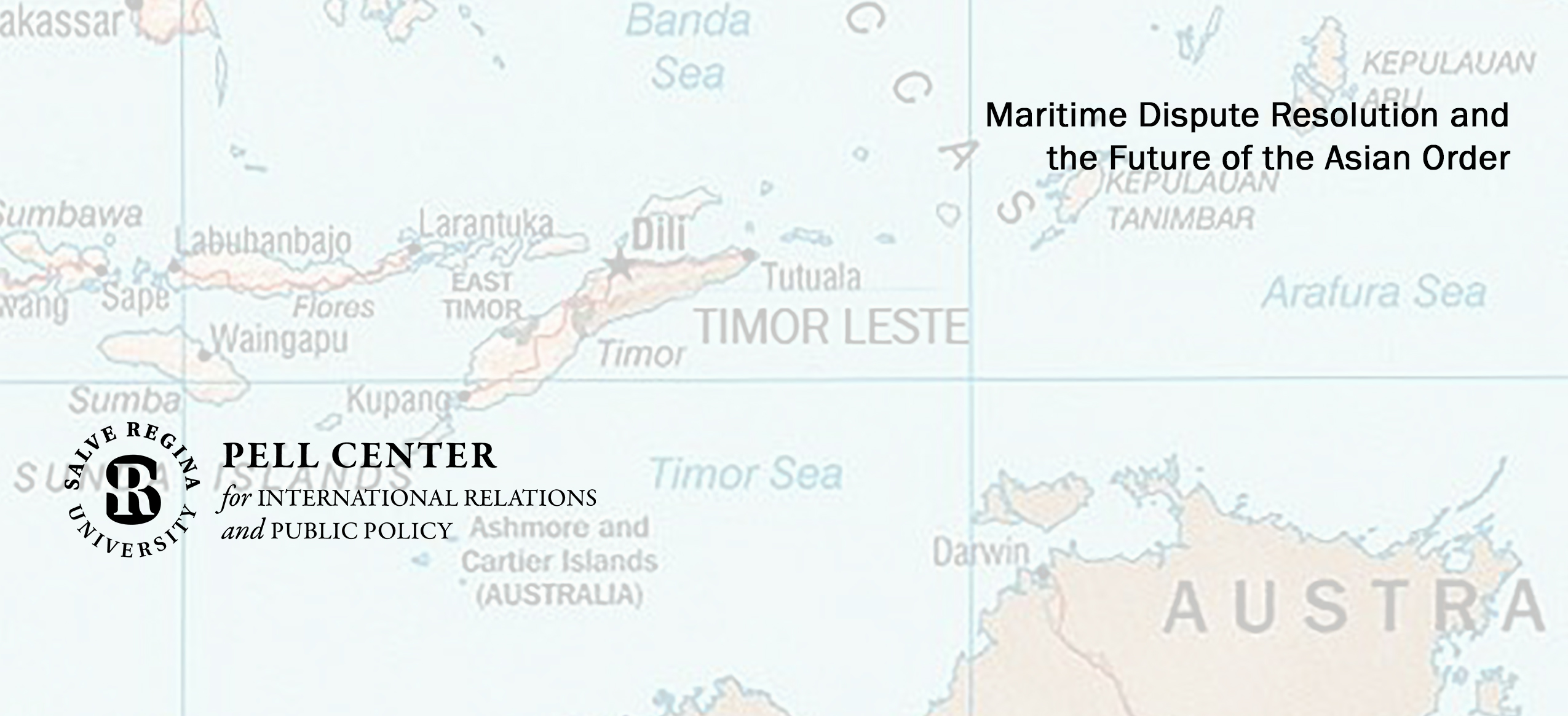New Paper Series: Maritime Dispute Resolution and the Future of the Asian Order
After years of tension and disagreement, negotiations over the Australia-Timor Leste maritime boundary line are drawing to a close. In September 2016, Canberra and Dili agreed to take part in a year-long conciliation process under the supervision of the Permanent Court of Arbitration at The Hague. In so doing, both Asian democracies have demonstrated their willingness to uphold the extant rules-based system. Indeed, the law of the sea is one of the structural pillars of the international order. The complex rules and norms that govern freedom of navigation and maritime economic activity have played a crucial role in the preservation of the global commons. Over the past few years, Asian states have displayed markedly different attitudes toward the United Nations Convention on the Law of the Sea (UNCLOS) and—more broadly— vis-à-vis the international legal regime.
These differences have become particularly stark in the field of maritime dispute resolution. Whereas some Asian states such as India have agreed to abide by U.N.-rendered verdicts on long-standing maritime boundary disputes with their smaller neighbors, others—such as the People’s Republic of China—have become ever more hostile toward international arbitration.
As we approach another landmark verdict, the Pell Center for International Relations and Public Policy has commissioned—with the aid of the Timor Leste government—a series of short papers and opinion pieces on Maritime Dispute Resolution and the Future of the Asian Order.
2017
- Timor Leste, Australia, and Asia’s Contested Maritime Order | Evan A. Laksmana
- Breaking the Resource Curse? Timor Leste’s Resource Reliant Democracy | Kristin Johnson, Ph.D.
- Avoiding Another Crisis in the Western Pacific | Brigadier General Stephen Cheney, USMC (Ret.)
- Mandatory Counseling: Why the Timor Leste v. Australia Conciliation Court Cast Matters for Dispute Resolution | Lyle J. Morris
- How the United States Can Promote Resilience and Democracy in Timor Leste | Jonathan N. Stivers
- Timor Leste Is an International Intervention Success Story | John Watts
2019
- Despite the Odds: Timor-Leste’s Quest to Avoid a Debt Trap Dilemma and Achieve Democratic Stability | Hunter Marston
- Finding Partners: Timor-Leste’s Evolving Security Ties with Southeast Asia| Natalie Sambhi
As additional pieces are published, they, too, will be posted here.

